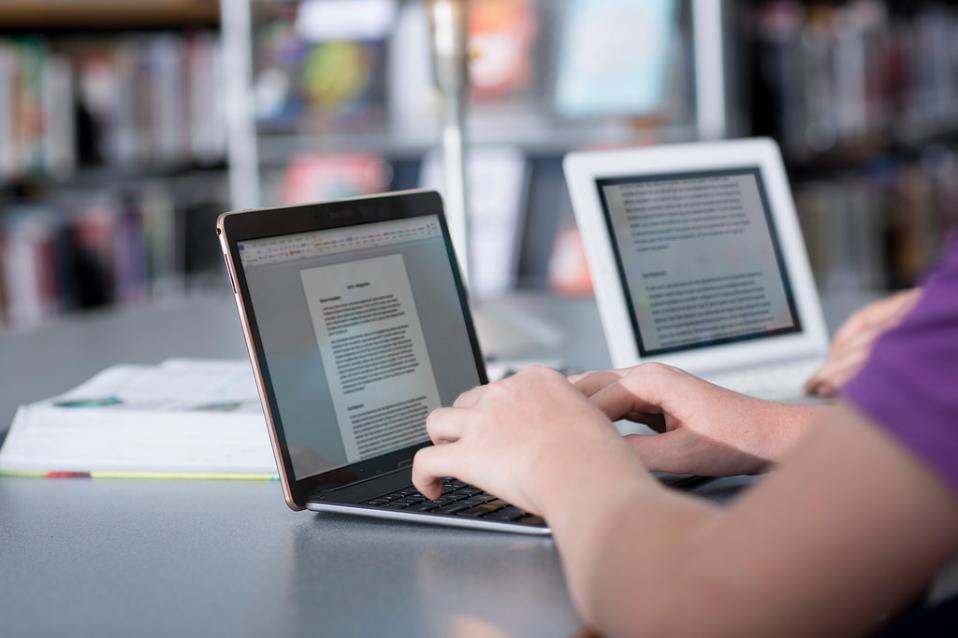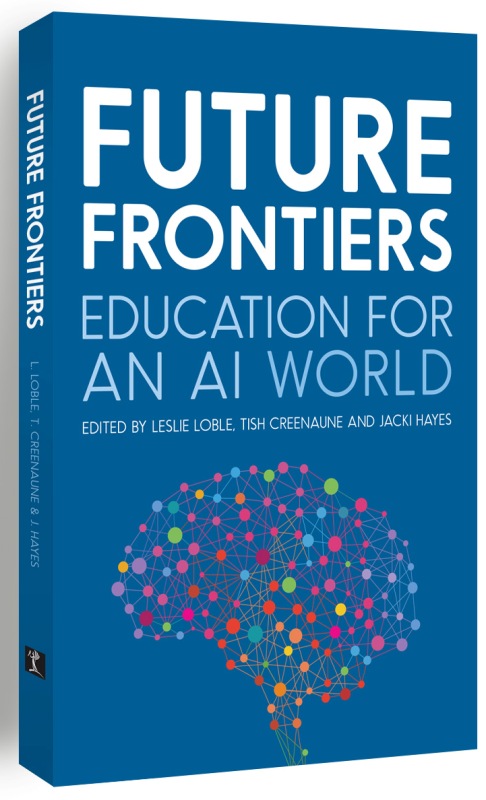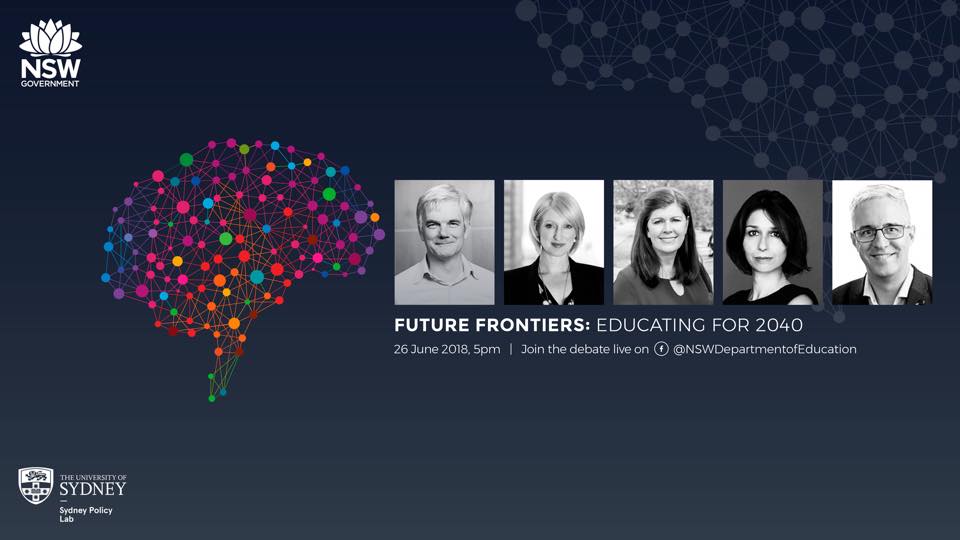July 1 - 7, 2018: Issue 366
Education System Prepared For Future Of Work: Major NSW Education Report Released This Week

Education System Prepared For Future Of Work: Major Report
June 26, 2018: University of Sydney
A major report has rated Australia's education system as 'very good' and highlighted workplaces as a powerful site for learning.
The report, ‘Preparing for the Best and the Worst of Times’, describes Australia’s education system as “very good” but adds that “a good legacy isn’t enough and that the system requires constant evaluation and debate”.
It also calls on educators to provide children with “a strong learning disposition” and for the academic and vocational arms of education to work more closely together.
“We need new education settlements where employers are part of the deal,” said the University of Sydney Business School’s Professor John Buchanan. “We should see the role of employers in education as a public good. Workplaces are powerful sites for learning.”
‘Preparing for the Best and Worst of Times’ was commissioned by the NSW Department of Education and produced under the auspices of the University of Sydney’s Sydney Policy Lab, which was established to foster innovative and creative policy solutions to complex local and global challenges through collaborative research.
We should see the role of employers in education as a public good. Workplaces are powerful sites for learning. Professor John Buchanan, University of Sydney Business School
“This report reflects the NSW Department of Education’s commitment to supporting informed contributions to the national conversation about how education can better prepare young people for the challenges of life and work post-school,” said Department of Education Secretary, Mark Scott AO.
In keeping with this commitment, Mr Scott asked the University of Sydney to look at the skills Australia’s children will need as Artifical Intelligence (AI) and other technologies “transform Australia’s economy, the workplace and the community”.
“Our response to that challenge is contained in this report and it is based on insights drawn from a team of internationally recognised experts in mental and physical health, engineering, education, business studies and the social sciences,” said Professor Buchanan.
Led by Professor Buchanan, the team included workplace relations expert Dr Rose Ryan; Professor Michael Anderson from the University's School of Education and Social Work; Professor Rafael A Calvo, Director of the University’s Wellbeing Technology Lab; Dr Nick Glozier, Professor of Psychological Medicine at the Brain and Mind Centre, and Dr Sandra Peter who heads the Sydney Business Insights unit.
Professor Buchanan said while AI has already been used as an excuse for cut jobs and had accentuated some forms of inequality, “technological change was usually for the good, depending on how it was handled”.
In a world rich with artificial intelligence this report helps us answer the question of how schools can help these students to not just survive – but to thrive in this rapidly changing environment. - Mark Scott AO, NSW Department of Education Secretary
“It is sometimes argued that because of the disruption caused by AI we have got to give school children 21st century skills such as creativity, collaborative capacity, financial literacy, IT literacy,” Professor Buchanan said.
“The idea that very young people can acquire generic skills in the abstract is totally unhelpful. In our view, if you want to solve problems, you become skilled in a specific area of interest and then learn to solve problems in your area.
“Someone with really good problem-solving skills who works in a childcare centre is going to be no good on an oil rig when a fire breaks out. Equally, a mining engineer who can handle a fire on an oil rig would have a nightmare trying to manage a childcare centre.
“We have got to have a dynamic relationship between the specific and the general. In Switzerland and Germany, they are still training clockmakers and watchmakers and they gain transferable analytical and dextrous capacities they can take into the medical devise or tool-making field.”
While counselling against generic problem-solving skills training, the report strongly recommends that students, particularly those in primary education, be given a strong desire to learn.
“We must nurture curiosity, give people the capacity to concentrate and the ability to follow an idea through over time,” Professor Buchanan said.
At high school level, the report recommends a greater focus on vocational education in partnership with business.
“When you get to high school there is a need to really think through the curriculum,” Professor Buchanan said. “We note that on the academic side, there has been too much of a pre-occupation with ATAR and what we call the competitive academic curriculum and on the vocational education side there has been too much of a willingness to go down market, to provide short run skills relevant to employers in the district.
“You have to enliven the academic curriculum and deepen the vocational curriculum.”
‘Preparing for the Best and Worst of Times’ was launched in Sydney. The NSW Department of Education broadcast the event via Facebook Live on Tuesday 26 June, Future Frontiers: Educating for 2040, with speakers:
- Professor John Buchanan
- Dr Sandra Peter
- Professor Rafael Calvo
- Stacey Quince, Principal Campbelltown Performing Arts High School
- Emma Hogan, NSW Public Service Commissioner.
“We know that a child starting kindergarten last year will spend much of their working lives in the second half of the 21st century,” Mr Scott concluded. “In a world rich with artificial intelligence this report helps us answer the question of how schools can help these students to not just survive – but to thrive in this rapidly changing environment.”
Future Frontiers Analytical Report: Preparing For The Best And Worst Of Times
Professor John Buchanan, Dr Rose Ryan, Professor Michael Anderson, Professor Rafael Calvo, Professor Nick Glozier, Dr Sandra Peter
University of Sydney
Led by Professor John Buchanan, Head of Business Analytics at the University of Sydney Business School, and the Sydney Policy Lab, an inter-faculty team of professors, researchers and senior academics consider the question of what today’s six years olds will need to thrive, and not just survive, when they finish school given the extent of predicted technological and global change.
Some 20 professors and senior academics were brought together in workshops and interviews to discuss their insights into the future needs of citizens in a world disrupted by AI and technology, and what this might mean for education.
Students need to develop more than just ‘soft’ or ‘general employability’ skills
- If we want young people to thrive as citizens and not just be highly flexible labour, they need nurturing in many aspects of life and development, not just those related to employability.
- Students need to develop fundamental dispositions for learning and adaptability in the broadest sense, such as concentration, resilience, curiosity.
- In an AI-rich world, students will need to understand how algorithms and AI-based technology works, how it can impact on their world and the importance of ethical design.
21st century skills are best acquired through domain-specific knowledge
- Once the early learning foundations have been built, the mastery of these ‘soft’ skills are best developed in the context of deep domain specific knowledge and specialist expertise.
- Skills and expertise in problem-solving, critical thinking and communication may also be subject and job-specific, and not necessarily transferrable.
The historical divide between the vocational and academic within schools should be narrowed
- Mainstream, academically-focused curricula has been criticised historically as too abstract and students can struggle to understand the importance of what they are learning, which can lead to disengagement. Rather, students need more opportunities to engage with practical, current and applied implications of learning, including how complex problems are approached in real-world contexts.
- Conversely, some vocational subjects are at risk of having been ‘dumbed down’ or made too specific to meet current vocational requirements, which may reduce students’ capacity to build deeper engagement and a drive for life-long learning. Rather, VET should provide learners with deep content knowledge and help to engage less academically inclined students to build their learning capacity longer term.
Education systems and society more broadly needs to consider what change is required to help meet these future challenges
- The authors argue that it may be time for a new educational settlement with greater partnership between schools and select employers; however, teachers will need to remain the custodians of quality education.
- It is important for individuals, governments and organisations to understand that they have agency over technology and AI, and can determine how it is best applied in the future.
The Full Report (PDF 2292.48 KB)
The Executive Summary (PDF 154.88 KB)
If you missed it, you can watch the video here: http://bit.ly/2MXegHp
Stay in the loop: http://bit.ly/2N5iUU2
 Future Frontiers – Education For An AI World (E-Book)
Future Frontiers – Education For An AI World (E-Book)
This compilation of essays canvasses perspectives from thought leaders, technology experts and futurists from Australia and around the world.
To download the ebook to your PC or laptop, right click (option click on Mac) and select save. To read these files on your computer you will need to download e-reader software.
PC and Mac (EPUB 865.43 KB)
Kindle (MOBI 1549.11 KB)
On a mobile device, hold down on the link and follow your device's instructions to download the files.
iOS and Android (EPUB 865.43 KB)
Kindle (MOBI 1549.11 KB)
Need help downloading the e-book? See the Melbourne University Press FAQs
A PDF version of the book is also available by clicking on the link below:
Future Frontiers: Education for an AI World (PDF 2426.03 KB)
A joint publication by Melbourne University Press and the NSW Department of Education.
When today’s kindergartner is of prime working age and supporting a family, machine intelligence will have penetrated nearly every facet of daily life and corner of the workplace. Future Frontiers: Education for an AI World is for everyone within the education community who is searching for answers to critical questions. What will children need to know when they leave school? What skills and values will they need to lead rich and fulfilling lives? In a world where many of the tasks that make up their parents’ jobs will be done by machines, what will our students need to draw on from their school education to thrive?
The leading academics and thinkers who have authored these essays challenge us to think deeply about how education responds to a rapidly changing world and encourage us to pursue greater innovation across the education system.
